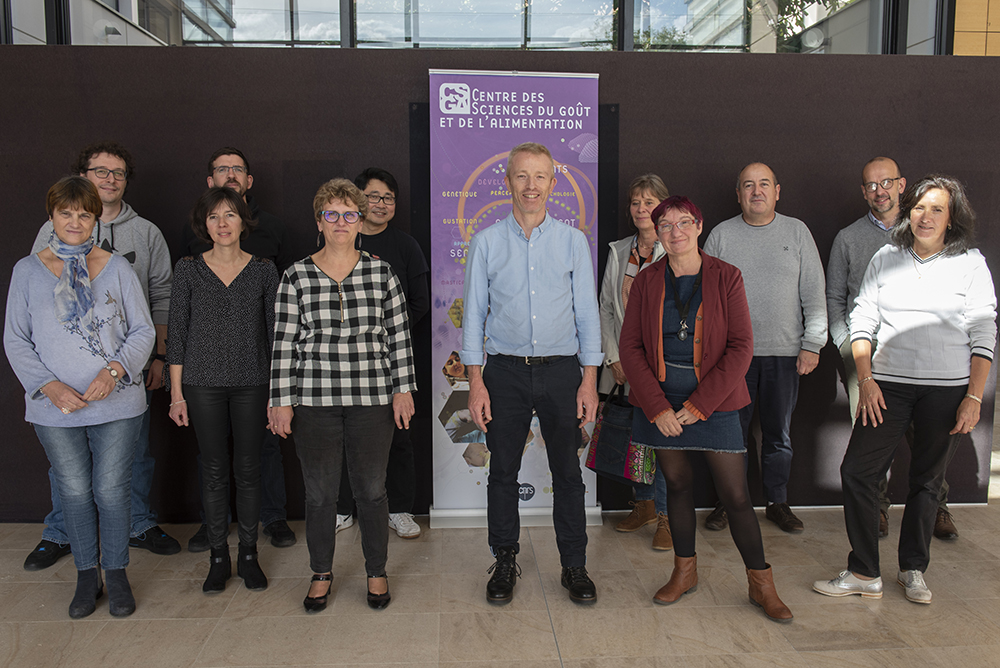
Reading time 7 min
Olivier Lalouette, a taste for support
Published on 19 November 2019
When you ask Olivier what this award means to him, he sees it as recognition of the job of a manager who drives the efforts of a large support community. This motorbike fanatic is modest when trying to put the award in context: “It just means that I am doing my job well and above all that I was “lucky” enough to be put forward by my director”.
Simplifying the life of scientists
Olivier is a clear thinker who becomes involved in all aspects of research support: HR, budgets, partnerships, logistics, computer services or documentation! His legally trained mind means that “I like to try and make the lives of scientists a bit easier. Sometimes, that will just mean sorting out a complex situation while remaining fair and transparent”, he explains. Because he works closely with a colleague specialised in computer sciences, Olivier has also become fascinated by the development of targeted management tools. Why did he take up this career? “When I joined INRA, there was a gulf between general services and the research units. A little later, the notion of support was introduced through the creation of research support services”. He is grateful to his director at that time for having allowed him to spread his wings. For him, that period offered an opportunity to develop interactions with research teams.
Available and responsive, he makes every effort to find solutions
“At UMR CSGA1, I have had an opportunity to better understand the problems faced by scientists and how they are supervised by immersing myself in their culture. In that way, I can feel even more useful.” One of his scientific colleagues confirms that he is “always available and responsive. He makes every effort to find solutions to the problems we have to deal with”. For Olivier, INRA and its work hold much hope for the future as it concerns us all. “Whatever we do, at whatever level, we are participating in these efforts. I believe that our support work can provide real assistance for our scientists”.
Tough and determined
Olivier remembers some small victories that involved his colleagues and gave a sense to what he does. “It may have been the urgent acquisition of a particular piece of equipment, a budget arrangement, facilitating recruitment or providing justifications for a 'complicated' contract”, he explains, acknowledging his combative side. He is also a lover of ultra-trail2 and admits “I am very tough. Whatever happens, I will continue to advance, even if it is difficult”, although this self-denial does not prevent him from being sensitive. “Attacks upset me, even if they are unfounded”.
But that does not dent his sense of humour. “We are there to work diligently, but everything goes much better if it is leavened with a bit of good humour and fun!” One of the fifteen people who help him fulfil his missions agrees: “Olivier is an open and optimistic person. I much appreciate his ability to listen and his quirky humour, which make working with him a real pleasure”.
1 Centre for Taste and Feeding Behaviour, AgroSup Dijon–CNRS-INRAE-Université de Bourgogne Joint Research Unit, UMR 1324.
2 Long-distance running in a natural environment.

47 years old, married with two children
Career:
- 1995: Master’s degree in business law
- 1999: recruited by the Partnerships and Purchasing Policy Department of Research Support Services at the Bourgogne-Franche-Comté Research Centre (BFC)
- 2003: Deputy Director of Support Services at the BFC
- 2008: Acting Director of Support Services
- 2009: Manager of the project concerning the organisation of the future UMR CSGA
- 2010: Manager of UMR CSGA
- Since 2013: Deputy Unit Director responsible for Research Support Services in the UMR CSGA
Hobbies: Ultra-trail, motorbikes, Krav Maga
WHAT'S NEXT? |
| Between now and 2021, Olivier aims to obtain his Master’s degree in “Management Control and Organisational Audits of Public Organisations” with IAE in Dijon. This diploma programme started in September 2019 and involves him working 50% during the first year and then spending 100% of his time out of the office the second year. When he returns, Olivier would like to exploit these additional skills within INRA, perhaps becoming involved at a national level in research support services. |
